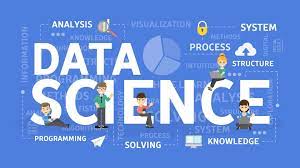Hello!
 Companies hire data and machine-learning professionals to help them with cutting-edge ML models.
Companies hire data and machine-learning professionals to help them with cutting-edge ML models.
They spend often 80% of their time cleaning or dealing with data that is riddled with missing values, outliers, large load times, and a constantly changing schema. It is not uncommon for people to be far from their expectations.
Data scientists may initially be enthusiastic to work on advanced models and insights, but this enthusiasm quickly fades amid daily schema changes, tables that stop updating, and other surprises that silently ruin models and dashboards.
Although “data science” can be applied to many roles, such as product analytics or putting statistical models into production, there is one thing that is always true: data scientists, ML engineers, and data analysts often sit at the tail of the data pipeline. They are data consumers and pull data from data warehouses, S3, or other central sources. They use data to aid in business decisions and as inputs for machine-learning models.
 They are affected by data quality issues, but they don’t have the power to move up the pipeline to correct them. They either add a lot of data processing to their work or move on to a new project.
They are affected by data quality issues, but they don’t have the power to move up the pipeline to correct them. They either add a lot of data processing to their work or move on to a new project.
This scenario may sound familiar. You don’t need to give up on data engineering or complain about how it is constantly broken. Be a scientist, and go experimental. You are responsible for the final step of the process, putting models into production.
This might seem unfair or scary, but it’s a great opportunity to shine and make an impact on your team’s business impact.
These are five ways data scientists and ML analysts can get out of defensive mode. They’ll ensure that data quality issues don’t impact the teams who rely on it.
1. Improved Data Quality Monitoring can Increase Trust
Executives are hesitant to base their decisions solely on data. A KPMG report showed that 60% of companies aren’t confident in their data and that 49% of leaders don’t support internal data or analytics strategies.
 Data scientists and ML engineers who are skilled in data science can improve data accuracy and then get it into dashboards that aid key decision-makers.
Data scientists and ML engineers who are skilled in data science can improve data accuracy and then get it into dashboards that aid key decision-makers.
They will have a positive impact on the world by doing this. However, manually checking data for quality issues can be error-prone and slow down your velocity. This slows down your productivity and can lead to lower productivity.
Data quality testing (e.g. With debt test and data observation, you can quickly identify quality issues and win the trust of your stakeholders.
2. To Avoid Confusion and Blaming, Create SLAs
 Data quality issues can lead to a frustrating blame game between software engineering, data science, and data engineering. Who did the damage? Who knew it? Who will fix it?
Data quality issues can lead to a frustrating blame game between software engineering, data science, and data engineering. Who did the damage? Who knew it? Who will fix it?
Bad data can be disastrous for everyone. So that your business can move forward with accurate information, stakeholders need the data to work.
With Service Level Agreements, good data scientists and ML experts establish accountability for each step of the data pipeline. SLAs establish data quality in quantifiable terms and assign responders to correct problems. SLAs can help you avoid the blame game.
3. Experiments Allow for Faster Analysis
 Trust is fragile and can quickly be destroyed when stakeholders make mistakes and blame others. What about when stakeholders don’t spot quality problems? If they don’t catch quality issues, the model or business suffers. The business is in trouble in either of these cases.
Trust is fragile and can quickly be destroyed when stakeholders make mistakes and blame others. What about when stakeholders don’t spot quality problems? If they don’t catch quality issues, the model or business suffers. The business is in trouble in either of these cases.
What if one entity is logged as “Dallas Fort Worth” and “DFW”, respectively, in a database? Everybody in “Dallas Fort-Worth”, and everyone in “DFW,” are shown variation A.
The discrepancy is not noticed by anyone. It is impossible to conclude users in Dallas Fort Worth – the test has been thrown out, and the groups aren’t properly random.
A foundation of high-quality data will make it easier to perform better analysis and experimentation. Your data will be more reliable and can be used by your expertise to run meaningful tests. Instead of focusing on the next test, the team can concentrate on the test results.
4. Be The Point Person Responsible for Data Quality
 Confidence in data starts with you. If you don’t have reliable and high-quality data to hand, it will be a burden on your interactions with the product or your colleagues.
Confidence in data starts with you. If you don’t have reliable and high-quality data to hand, it will be a burden on your interactions with the product or your colleagues.
As the point-person responsible for data quality, data ownership, and data ownership, you can stake your claim. You can participate in defining quality and delegating responsibility to fix different issues. Eliminate friction between engineering and data science.
You can make a difference in the lives of every team member if you are able to lead the charge for data quality improvement. Your colleagues will be grateful for your efforts to reduce headaches across the organization.
5. Data Waste can be Minimized
 Terabytes of data could be lost if it is not complete or reliable. These data can live in your warehouse and be included in queries that result in compute costs. As it is included in the filtering-out process, low-quality data can cause significant infrastructure costs.
Terabytes of data could be lost if it is not complete or reliable. These data can live in your warehouse and be included in queries that result in compute costs. As it is included in the filtering-out process, low-quality data can cause significant infrastructure costs.
It is possible to create immediate value by identifying complex data, especially in the case of pipelines that receive heavy traffic for machine learning and product analytics.
To reduce storage and compute costs, you can reprocess, impute, or recollect existing values.
Keep track of all the tables and data that you remove and how many queries are running on them. Notifying your team of how many queries are not running on junk data, and how many gigs are available for better things is essential.
 All data professionals, whether they are seasoned veterans or newcomers, should be integral parts of an organization. By taking control of reliable data, you add value.
All data professionals, whether they are seasoned veterans or newcomers, should be integral parts of an organization. By taking control of reliable data, you add value.
While tools, algorithms, and analytics techniques have become more sophisticated, the data that is used to generate them are often less reliable. This is because each business has its own unique data. Erroneous data can make it impossible for even the most advanced tools and models to work.
Through the five steps above, data science can have a positive impact on your entire company. Everybody wins when you improve the data that your teams relyon.
Also read:
- Scientists Suggest Tiny Black Holes Are Regularly Cruising Through Our Star System
- Biotech Penile Implants Let Pigs Get Erections Again
- Small Robots, Big Impact: Surprising Ways Automation Helps Us
Thank you!
Join us on social media!
See you!






